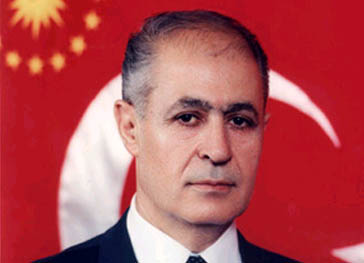
PROSPECTS OF IMMINENT CIVIL-MILITARY CONFRONTATION RECEDE IN WAKE OF TURKISH ELECTIONS
Publication: Eurasia Daily Monitor Volume: 4 Issue: 142
By:

Fears of another confrontation between the ruling AK Party and Turkey’s powerful military over the appointment of the country’s next president have receded in the wake of yesterday’s general election. The July 22 polls resulted in an increase in the AK Party’s vote but a decline in its parliamentary majority. As a result, the AK Party will have to secure the backing of at least one opposition party before it can appoint its chosen candidate to the presidency; thus increasing the possibility that the issue will be resolved within parliament.
According to the unofficial results of the election, the AK Party won 46.5% of the total vote, up from 34.3% in the previous elections in November 2002. The Republican People’s Party (CHP) finished second with 20.8% ahead of the ultranationalist Nationalist Action Party (MHP) 14.3%. No other party succeeded in crossing the 10% threshold for representation in parliament (Hurriyet, Radical, July 23). Once the results have been officially confirmed by Turkey’s Supreme Electoral Board, the AK Party is likely to have 340 seats in Turkey’s 550-seat unicameral parliament, followed by the CHP with 112 seats, the MHP with 71 seats and 27 independent deputies (Milliyet, July 23).
Under the Turkish constitution, parliament elects the president for a seven-year term. The incumbent Ahmet Necdet Sezer’s term officially finished on May 19. In April 2007 the AK Party’s attempt to appoint Foreign Minister Abdullah Gul to the presidency triggered an intervention by the Turkish General Staff (TGS). Like many in Turkey’s secular establishment, the TGS suspects that the AK Party has a long-term radical Islamic agenda and is merely biding its time until it is strong enough to introduce it. Since the AK party came to power in November 2002, Sezer has frequently vetoed legislation and blocked AK Party appointments to the bureaucracy. The fear was that, with Gul in the presidency, the AK Party would finally be able to chip away at the principle of secularism enshrined in the Turkish constitution. There was also considerable concern at the fact that Gul’s wife wears an Islamic headscarf. To hard-line secularists in Turkey, a headscarfed first lady would, in itself, be a violation of secularism.
On the evening of April 27, only hours after parliament had completed the first round of voting, the TGS posted a memorandum on its website implicitly warning the AK Party to withdraw Gul’s candidacy or face being toppled from power. The memorandum, which was described as an “e-coup” in the Turkish media (Radikal, April 28), prompted Turkey’s Constitutional Court to issue a hitherto unknown ruling that, in order for the vote to be valid, at least two-thirds (367) of the parliamentary deputies had to be present in the chamber during the election of the president. In response, the AK Party, which at the time controlled only 359 seats, called an early general election for July 22.
After the announcement of early elections, the TGS deliberately adopted a low public profile. Military sources have indicated to Jamestown that they believed that the TGS had fulfilled its responsibilities by galvanizing opposition to the AK Party. They were confident that, even if the AK Party emerged from the July 22 polls as the largest party in parliament, it would have a much-reduced majority and could even be forced from power by a coalition between the CHP and the MHP.
However, the military memorandum allowed the AK Party to present itself to the electorate as the victim of an intervention in the democratic process. In the run-up to the July 22 elections, Abdullah Gul declared that, contrary to the military’s expectations, the memorandum had boosted the AK Party’s vote (Milliyet, July 22). On election night, Prime Minister Tayyip Erdogan described the Ak Party’s resounding victory as a “reflex of the national will in response to what was done to Abdullah” (Milliyet, July 23). Parliamentary Speaker Bulent Arinc characterized the election results as a “memorandum by the people” (NTV, July 23).
Nevertheless, the AK Party’s failure to secure a two-thirds majority in parliament means that it needs the approval, or at least the tacit cooperation, of the opposition before it can appoint its own candidate to the presidency. As a result, the TGS is likely to continue to adopt a low public profile, preferring to allow any confrontation over Sezer’s successor to be between the parties in parliament.
The current expectation is that the new government will be sworn in during the first week of August 2007 (Cumhuriyet, July 23). Under Turkish law, the new parliament’s first task will be to elect a new president, a process that could take until the end of August.
But the general expectation in the TGS is that, whatever happens with the presidential election, at some point in the future the AK Party will attempt to erode the current interpretation of secularism in Turkey. For the Turkish military, safeguarding secularism is a scared duty, which takes precedence over all other considerations. As a result, the military’s suspicions of the AK Party’s long-term intentions are likely to ensure that its current low public profile does not become permanent.




